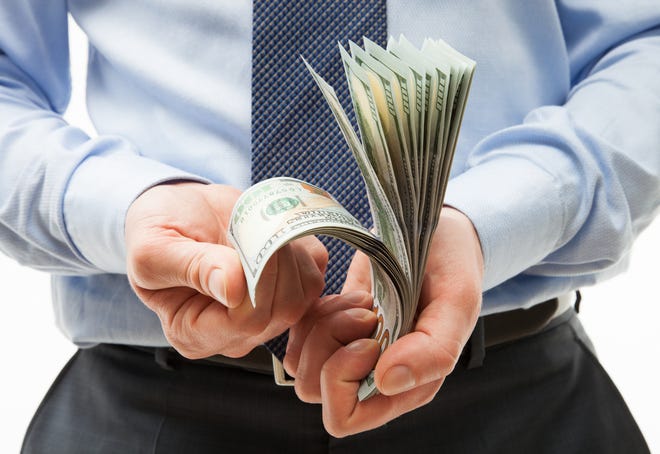Taxes. Just the word can make your eyes glaze over, right? Every year, we slog through forms, deductions, and loopholes, trying to figure out what we owe—or what we can get back. The current income tax system in the U.S. (and many other places) is a sprawling, progressive beast: the more you earn, the higher percentage you pay. It’s been around forever, and we’re used to it. But what if there’s a better way? Enter the flat tax—a single, uniform rate for everyone. No brackets, no tiers, just one number. Sounds radical, but let’s break down why it might just be the breath of fresh air our economy needs.
1. Simplicity Is King
First off, let’s talk about the mess we’re in now. The U.S. tax code is a monster—thousands of pages long, with rules so convoluted that even accountants need accountants. The progressive system, with its multiple brackets (10%, 12%, 22%, up to 37% as of now), means your tax rate shifts depending on your income. Add in deductions, credits, and exemptions, and it’s a puzzle most of us don’t have time to solve. A flat tax—say, 15% for everyone—wipes that slate clean. You earn $50,000? You pay $7,500. You earn $500,000? You pay $75,000. Done. No need for a PhD in Taxology or a weekend lost to TurboTax.
This simplicity doesn’t just save you time—it saves money. The IRS could shrink, businesses wouldn’t need armies of tax lawyers, and compliance costs (estimated at billions annually) would plummet. Imagine redirecting that energy into, you know, actually growing the economy.
2. Fairness Without the Drama
The progressive tax system is sold as “fair”—those who can afford more should pay more. It’s a noble idea, but in practice, it’s riddled with holes. High earners often exploit loopholes—think offshore accounts, charitable trusts, or capital gains tricks—that regular folks can’t touch. Meanwhile, the middle class gets squeezed, and the ultra-wealthy sometimes pay a lower effective rate than their secretaries (looking at you, Warren Buffett).
A flat tax levels the playing field. Everyone pays the same rate, no exceptions. No more gaming the system with deductions only the rich can afford to find. Sure, 15% of $1 million is still more than 15% of $50,000, so higher earners still contribute more in raw dollars—but the proportionality feels less punitive. It’s fair in a straightforward, no-nonsense way.
3. Economic Rocket Fuel
Here’s where it gets exciting: a flat tax could turbocharge economic growth. Progressive taxes punish success—the more you earn, the bigger the bite. That can discourage people from working harder, starting businesses, or investing. Why risk it if Uncle Sam’s just going to take nearly half? A flat tax, especially if set low, flips that script. It rewards effort and ambition without making you feel like you’re climbing a steeper hill the higher you go.
Look at countries like Estonia, which adopted a flat tax in 1994 (currently 20%). Since then, they’ve seen steady GDP growth, booming entrepreneurship, and a reputation as a startup haven (ever heard of Skype? Born in Estonia). Lower, predictable taxes attract investment and keep money flowing—something our current system struggles to do with its complexity and high top rates.
4. Less Political Meddling
Progressive taxes are a politician’s playground. Every election cycle, we hear promises of new credits, deductions, or bracket tweaks to “fix” the system. It’s a constant tug-of-war—corporations lobby for breaks, special interests push their agendas, and the tax code grows fatter. A flat tax cuts through that noise. One rate, no favoritism. It’s harder to weaponize taxes for votes or cronies when the rules are dead simple.
The Counterpoints (Because Nothing’s Perfect)
Okay, let’s address the elephant in the room: critics say a flat tax is regressive. A flat 15% might hit a low-income earner harder than a millionaire, since $7,500 out of $50,000 stings more than $150,000 out of $1 million. Fair point. One fix could be a basic exemption—say, the first $20,000 of income is tax-free for everyone—before the flat rate kicks in. That keeps it progressive-ish at the bottom without the baggage of multiple brackets.
Another worry is revenue. Could a flat tax fund everything we’ve got now—roads, schools, defense? It depends on the rate and exemptions, but studies (like from the Tax Foundation) suggest a rate around 17-20% with minimal deductions could match current revenue. Plus, economic growth from a simpler system might boost the tax base naturally.
Time for a Tax Revolution?
The current income tax system is like an old clunker—creaky, inefficient, and overdue for a trade-in. A flat tax isn’t perfect, but it’s sleek, fairer than you’d think, and built for speed. It could save us time, cut the bureaucracy, and ignite the economy. Maybe it’s time we stop tinkering with the old engine and just get a new ride. What do you think—could a flat tax work, or are we too stuck in our ways?

 Facebook
Facebook
 X
X
 Pinterest
Pinterest
 Copy Link
Copy Link
